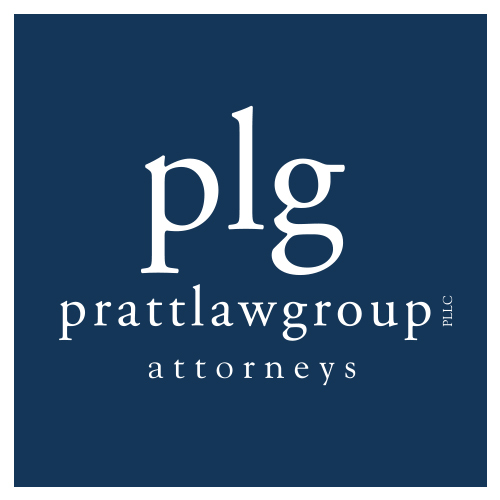Estate Planning
Dallas & Fort Worth | Austin | San Antonio | Houston
El Paso | Amarillo | Across Texas
An estate plan consists of many legal documents such as a will, trust, HIPAA release form, Healthcare Directives, Medical Power of Attorney and Durable Power of Attorney. It’s extremely important to have an estate plan that lays out what happens to your belongings after you die. Without this document, the state of Texas will decide how the estate is divided.
With estate planning, you can decide how you will be cared for if you become incapacitated and how your assets will be managed and distributed. It is important to create these documents sooner than later and can help alleviate a lot of stress for your family and loved ones.
Estate Planning documents regularly prepared by PLG include: Last Wills, Revocable and Irrevocable Trusts, Powers of Attorney, HIPAA Release, Living Wills, Declarations of Guardians, Family Limited Partnerships, Charitable Remainder Trusts, Special Needs Trusts, Supplemental Needs Trusts, Veterans Administration Trusts, Pet Trusts, Gun Trusts.
Flate Rate Services Below:
On a Mobile Device?
Click Here To View Price Table In New Window
BASIC |
STANDARD |
PLUS IRA OR A/B BYPASS |
|
|---|---|---|---|
| Living Trust (Basic has outright distributions only and same distribution for both spouses; Standard and Premium include protective trusts for heirs; see below) |  |
 |
 |
| Pourover Will(s) |  |
 |
 |
| Deed, Homestead Affidavit and Assignment (may be additional charge for more than one deed) |
 |
 |
 |
| Medical Power of Attorney |  |
 |
 |
| Directive to Physician |  |
 |
 |
| HIPAA Authorization and Release |  |
 |
 |
| Statutory Durable Power of Attorney |  |
 |
 |
| Declaration of Guardians – Children |  |
 |
 |
| Declaration of Guardians – Adults |  |
 |
 |
| Trustee Funding Memorandum |  |
 |
 |
| Notarization and Storage of Copies |  |
 |
 |
| Free Checkup Meeting Every 3 Years |  |
 |
 |
| Free Consultation with Trustee at Disability and Death |  |
 |
 |
| Sign with an experienced estate planning paralegal (important protection!) |
 |
 |
 |
| 24/7 Access to secured client portal |  |
 |
 |
| FREE Consultation with Affiliated Financial Advisors |  |
 |
 |
| Protective Trusts for Heirs (Personal Asset TrustSM, Staged Distribution, Lifetime, Spendthrift or Special Needs Trust) |
 |
 |
|
| Burial / Cremation Instructions |  |
 |
|
| Property Agreement (if married) |  |
 |
|
| Executor’s Manual |  |
 |
|
| Trustee’s Manual |  |
 |
|
| IRA Inheritance or A/B Bypass Trust |  |
||
| Beneficiary Manual |  |
||
| Free Advanced-Level Estate Tax and Asset Protection Meeting |
 |
||
FIXED FEE |
|||
Single Person |
$2,295 |
$3,295 |
$4,750 |
Married Couple |
$3,295 |
$4,295 |
$5,750 |
Need Help With Something Else?
More complicated options are available; but, because of their complexity, the Firm bills such work by the hour and typically charges a rate of $295 to $395 per hour.
Estate Administration
Assistance with estate administration is also available and can be billed with hourly or as a flat fee. Click below to learn more.
Read More About Each Of These Important Legal Documents Below:
Wills
The Last Will and Testament is the document used to indicate how you would like your assets to be distributed at your death and who you would like to administer your estate. Without it, the Texas legislature has already written a “will” that every court in Texas must apply in making these decision, and it may not be how you wish your assets to be divided. A Will, once created, should regularly be reviewed and updated as necessary.
HIPAA Medical Information Release
A Health Insurance Portability and Accountability Act release is a document which allows you to name someone aa your agent who can access medical information necessary to speak on your behalf with your physicians and hospital staff.
Declaration of Guardian in the Event of Later Incapacity or Need of Guardian
A declaration of guardianship in the event of incapacity or disability allows you to chose, before you become incapacitated or legally disabled, who you want to serve as your guardian of the person for medical decisions and guardian of the estate for financial decisions.
For instance, An elderly person (parent or other loved one) becomes unable to care for himself or care for herself. This is often an issue with dementia or Alzheimer’s; An adult is in an accident and suffers a debilitating brain injury. Vehicular accidents with head injuries are the most common. A child with an intellectual disability is about to turn 18 in Texas. In this case, there are laws and rules prohibiting educators and doctors from providing information regarding an adult. Even if the adult has an intellectual disability. Although professionals may wish to cooperate with parents, is isn’t always possible; A child with an intellectual disability is about to turn 18 in Texas. In this case, there are laws and rules prohibiting educators and doctors from providing information regarding an adult. Even if the adult has an intellectual disability.
Although professionals may wish to cooperate with parents, is isn’t always possible; an adult suffers a non-dementia type illness rending them incapacitated, usually his is a stroke or other illness which affects brain function; an adult who has caregiver(s) who can no longer legally attend to his/her financial or medical needs. This sometimes happens when there is a need for a new doctor or specialist. Unlike the family doctor, the new doctor may be unwilling to provide information. This is a real problem for caregivers and for the doctors. The doctor can only discuss medical treatment with an individual who has the legal capacity to make decisions. This can also happen with banks and financial companies. The teller you talked to for years, but now the bank changed ownership, and the new owners don’t practice the “good ol’ boy” system.
Out of Hospital Do Not Resuscitate Order (DNR)
A DNR must be signed by your physician and prominently posted on your refrigerator door or within clear sight of emergency medical personnel, in order to forego being transported to the emergency room to die a “death by ICU”.
Advanced Healthcare Directives
Advanced healthcare directives are known as a living will, which lets you dictate how the hospital should act in the case where you cannot recover from injury, disability or illness. For instance, you could tell them that you do or do not want heroic measures to keep you alive. You can choose who is allowed to receive information about your condition or medical condition.
It sounds morbid because you are forced to think about situations that may or may not happen. Should they do occur, you should have the right to decide what you want to happen, not someone else.
Trusts
This is a planning tool that is useful to attain any number of estate planning goals. It allows you to provide minors with assets at certain points in their lives. The trust is also ideal for tax planning and other financial matters. Due to the complexity of a trust, it’s imperative to speak with an estate planning lawyer to better understand its benefits and if it’s right for you.
Durable Power of Attorney
This lets you choose a person you want to act on your behalf should you become unable to do so. This document encompasses even non-medical-related issues. For instance, you can choose who will handle your financial affairs, such as banking, housing, etc. You choose how much or little power you give them over the affairs you want them to deal with.
Medical Power of Attorney
A medical power of attorney lets you choose who is to make medical decisions in the event you cannot do so. It’s similar to the Advanced Healthcare Directive but differs from it, as you get to name who will make healthcare decisions for you when you can’t.
For instance, if you are having surgery and must have something else done, the person you have chosen can decide what to do. An Advanced Healthcare Directive will carry out your stated wishes if it appears that you cannot live without a ventilator or other life-sustaining machines.






